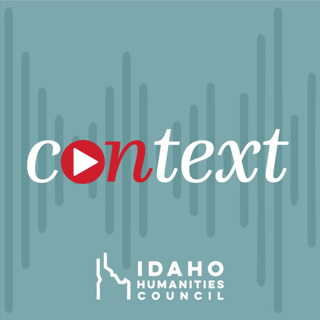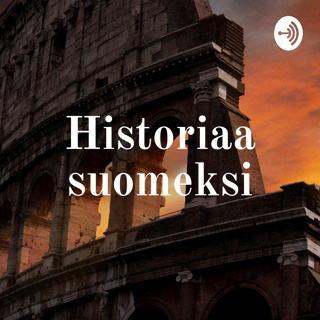
Christmas Movies and the Religious Dimensions of Story Structure
Johanna is joined by Dr. Russell P. Johnson from the University of Chicago Divinity School to talk about our favorite holiday films. Watch the video here.
5 Joulu 202329min

The Essential Hitchcock
Sir Alfred Hitchcock is arguably the most celebrated and admired film director in history. Dr. Douglas Cunningham joins Johanna to talk about the essential Hitchcock films everyone needs to watch and what we learn about ourselves through his work.
4 Joulu 20231h 28min

Bringing War Home
Join us for this episode to learn about the remarkable project co-directed by our guests that is working to preserve wartime stories, experiences, and objects to help communities connect with the history of war.
8 Marras 202335min

Understanding the Public Lands: Federal Land Management Agencies and the Lands They Manage
In this episode, Dr. Sara Dant explains the history of how we use public lands in the West and how federal land management agencies have stewarded those lands for the public. Dr. Dant’s presentation can best be viewed on YouTube and is geared toward students and teachers. Watch on YouTube here.
19 Loka 202342min

The Blue Humanities
Dr. McMillin shares his presentation on the Blue Humanities, which he gave at the IHC Summer Teacher Institute, An Environment of Hope, with our listeners. In this session, participants will be introduced to the “blue humanities,” with particular focus on rivers and literature. There are three main parts: Why Teach Blue Humanities, What to Teach If You Teach Blue Humanities, and How to Teach Blue Humanities. Part one (Why) centers around hope, and the ways that literature fosters hope through “Connecting” (making connections, belonging to the world, participating), “Flowing” (moving connectedly and connectively, changing, adapting), and “Reflecting” (re-viewing, re-seeing, re-thinking). In part two (What), we will explore different ways of using Blue Humanities in the classroom, including examples of semester-long courses (from both scientific and literary perspectives) and shorter units. The final section (How) involves looking at several literary works and thinking about their different approaches to rivers and the concept of “home.” Watch the video here.
16 Loka 202351min

Re-storying Idaho with the Healing Power of Hope
I am blooming from the wound where I once bled. –Rumi Idaho is fraught rich with stories of loss hope. Stories of failure resilience. Stories of doubt belief in a better future. Some of those stories are often repeated and some have not yet been told. It’s time to revisit our narratives from the past, to revise our stories for the future, to re-story a state and its beings whose destiny relies on what kind of storytellers we raise and what kind of ancestors we are going to become. In this interactive session that blends story, poetry, traditional ecological knowledge, science, and history, CMarie Fuhrman, Idaho writer in residence resistance will guide you on a journey of re-storyation. She will provide prompts, pedagogies, and poems to mix with imagination and literature to teach hope, resilience, and love and show how the craft of literature can make the stories and beliefs that change the future. Watch the video here.
16 Loka 202346min

The Black History Research Lab at the University of Idaho
Dr. Sydney Freeman, Jr. from the University of Idaho joins Johanna to talk about the Black History Research Lab and the important work he is performing as a memory keeper.
11 Loka 202326min

The History and Future of Public Schools
Dr. Johann Neemfrom Western Washington University joins Johanna in this episode to talk about the history of American public schools and the wrestle they are facing today about how to teach our nation’s history.
11 Loka 202334min





















